Welcome to Light On Light Through, Episode 384, in which I review Rebel Moon, Parts 1 and 2.
Written blog post reviews of Rebel Moon, Part 1 and Part 2.
reviewing Black Doves; Cross; Dark Matter; Dept. Q; Dexter: Resurrection; Dune: Prophecy; For All Mankind; Foundation; Hijack; MobLand; Outlander; Presumed Innocent; Prime Target; Severance; Silo; Slow Horses; Smoke; Star Trek: Strange New Worlds; Tehran;The: Day of the Jackal, Diplomat, Last of Us, Night Agent; Your Friends and Neighbors +books, films, music, podcasts, politics
George Santayana had irrational faith in reason - I have irrational faith in TV.
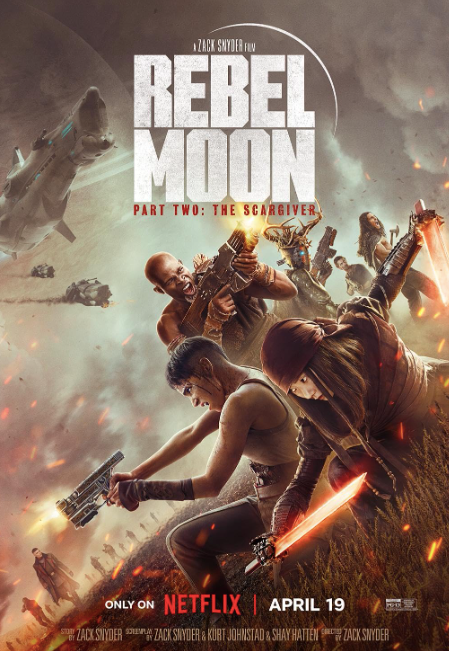
Just saw Rebel Moon, Part 2, on Netflix the other night. I enjoyed it. For some reason, my favorite character was the robot, JC-1435, aka James or Jimmy.
I'm not sure what that says about this second part of the movie (which, based on the ending, may well be the beginning of a series of two-part or one-part movies in a saga that now feels to me much more like Dune than Star Wars). Maybe it's the antlers on Jimmy's head. Maybe it's the voice -- you can't go wrong with Anthony Hopkins doing the voicing of anything. But all in all, James conveyed a sensitivity that's rarely seen in robots or androids in movies or TV series, and which in its own way had a subtlety that even Data in Star Trek: TNG seldom quite achieved.
The battles were good and exciting, strong edge-of-your seat stuff. The villains, however, often verged on cartoonish. The heroes had more subtlety, and maybe that's because there were more of them than the villains. I won't warn you about spoilers, because there won't be anything specific in this review, but I will say that this part of the movie which I hope will be a series concluded with fewer heroes than it had at the beginning.
Yeah, I hope we'll see more. I like looking at the state of the human species at times like these, when we've gone way out into the cosmos, and met other intelligent beings, some of them now deadly foes, others of them loyal friends. The problem with both Star Wars and Dune, and we can add Foundation to this list, is that if we've done any reading or watching, we already know who the major characters are and who they will be. Sometimes we even care about them so much, we don't like it if they're substantially changed in the new treatment (or at least, I feel that way). But Rebel Moon, even though it deals with very well worn tropes, has a winning freshness and relevance to it. The heroes in Rebel Moon, when they're not fighting Nazis, are harvesting grain. Just like they do in Ukraine.
And that's why I'm totally aboard to see more.
See also: Red Moon, Part 1: Galactic Heroes and Villains
Welcome to Light On Light Through, Episode 383, in which I review the first season of Constellation.
Written blog post review of Constellation.
Mentioned in the podcast:
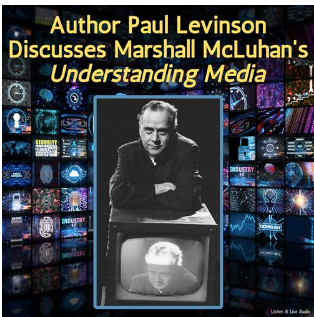
Just published: Audiobook of my 2014 Keynote Address at Baylor University, "50 Years after Understanding Media". Listen to a free audio sample, buy the audiobook here.
Welcome to Light On Light Through, Episode 382, in which I review the second season of American Rust.
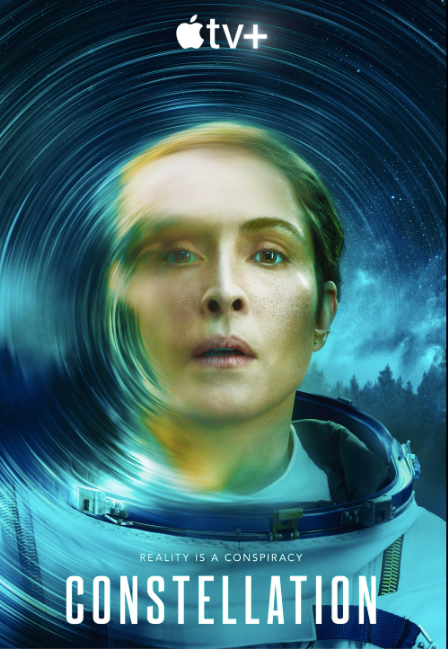
I've read and seen many alternate reality stories. Some are caused by quantum entanglement -- the mega version of two subatomic particles colliding and then moving in opposite directions but still intimately and instantly connected -- and some just happen or are already there. I just reviewed a movie with that schema, and have written a few double realities stories and a novel with that premise myself. But none explore the existence and impact of that on families the way that Constellation does. Indeed, none do much of that at all in the at once deep and startling way that this new series on Apple TV+ does.
[Some spoilers ahead ... ]
The title and the start of the series makes you think it's a story about space travel. But space is just the catalyst for a powerful, heart-tugging story that takes place right here on Earth. Jo is an astronaut on the International Space Station, which suffers a devastating accident. Most of the astronauts, cosmonauts, and space travelers from Europe manage to return to Earth. Jo and Paul are left on station. Paul dies of his injuries. Jo manages to get back to Earth, and that's when the fun begins. That is, fun for us, quite the opposite for Jo and her family.
Jo soon discovers that things aren't quite the same with her family as when she left for the voyage to the ISS. Her husband Magnus is surprised with how much Jo seems to like him. Her daughter Alice doesn't seem quite the same person. We soon learn that this voyage to space has split Jo's reality into two -- literally. There are, or were, two Jo's, two Magnus's, two Alice's. We hear about macro quantum entanglements. In this case, two families, which in fact are two versions of the same family. And things get really crazy when they try to communicate with one another.
There's a history to this -- the strange effect of going out into near space has been happening at least since the 1970s. There's a touch of alternate history, too. There's an Apollo 18 mission (in our reality, the Apollo Program ended with Apollo 17's trip to the moon). But the heart of this carefully crafted narrative is the agony that Jo's two families -- the same family, in two slightly but significantly different versions -- go through as they struggle to make sense of Jo's return from space and what's happening to them.
The narrative is immensely savvy, with winks to all kinds of things. There's a cat that lives and a cat that dies -- the same cat, actually, in alternate realities -- apropos Erwin Schrödinger. Alice lives up to her literary tradition, in wonderland on both sides of the looking glass. And the story is lifted by powerful performances, especially Rosie and Davina Coleman (twins) as the Alices, and Noomi Rapace as Jo. Jonathan Banks as Henry/"Bud" Caldera, an astronaut on that Apollo 18 mission and still very much around in twofold form in the 2020s, puts in an even more memorable than usual crusty performance. And it was good to see Barbara Sukowa as Irena, a cosmonaut whose double plays a crucial role in this story. Hats off twice to Peter Arness (Wallander) who created and wrote the series.
All in all, a thought-provoking, tightly woven, emotionally valent eight episodes of what could well be the first season of more to come, and I won't soon forget in any case.
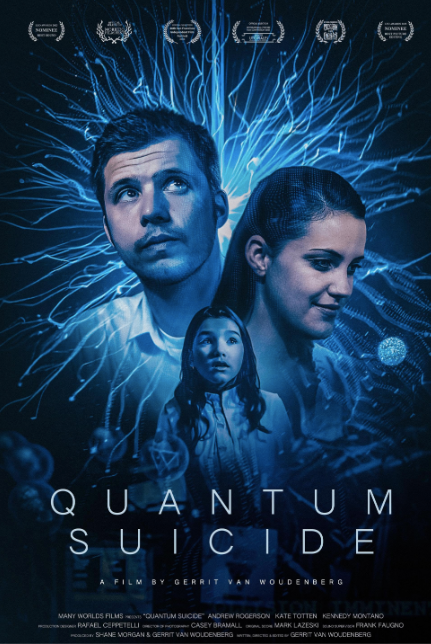
Gerrit Van Woudenberg's Quantum Suicide movie (which he wrote, directed, and -- with Shane Morgan - co-produced) won the Best Sci-Fi Dramatic Feature award at the Philip K. Dick Film Festival last week in New York. I was at the Festival, and moderated a panel with Van Woudenberg, but I had another appointment when the movie was shown at the Festival. Van Woudenberg was good enough to give me the URL for a screener, which I just saw and greatly enjoyed. Herewith a non-spoiler review.
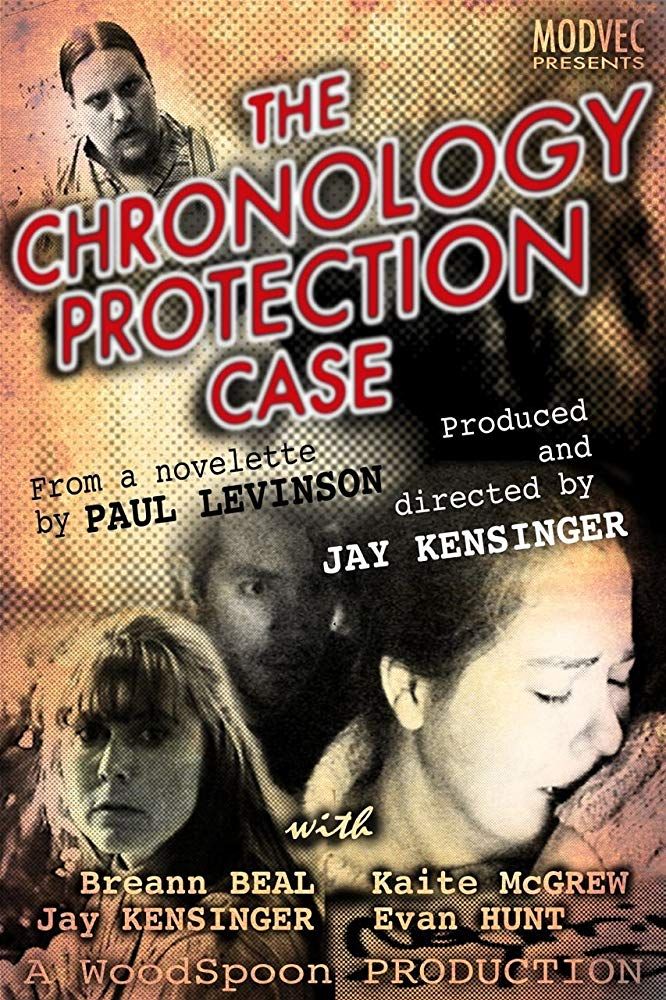
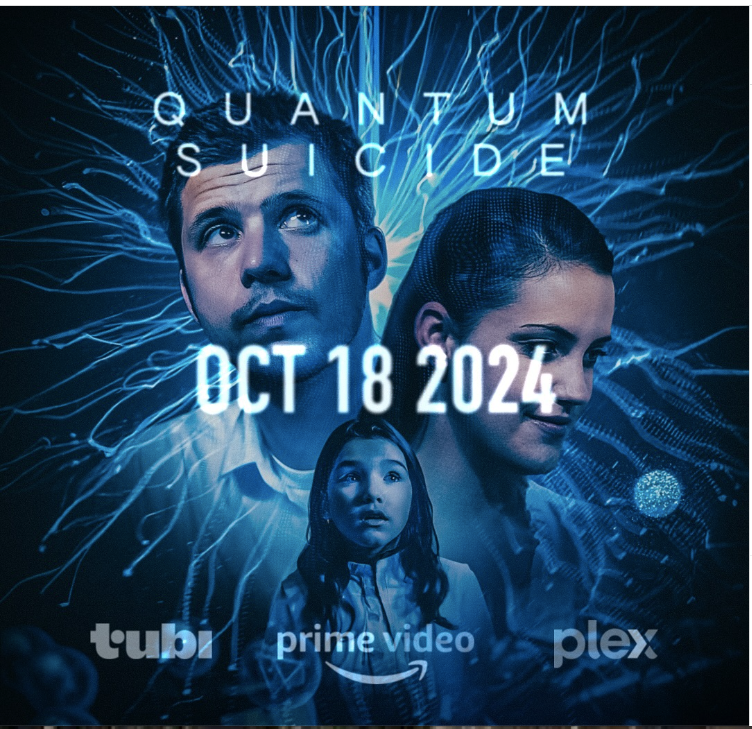
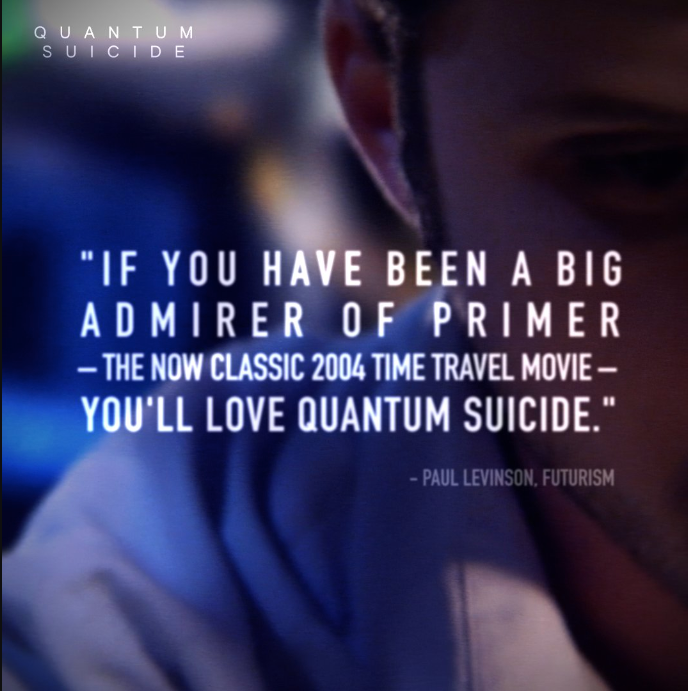
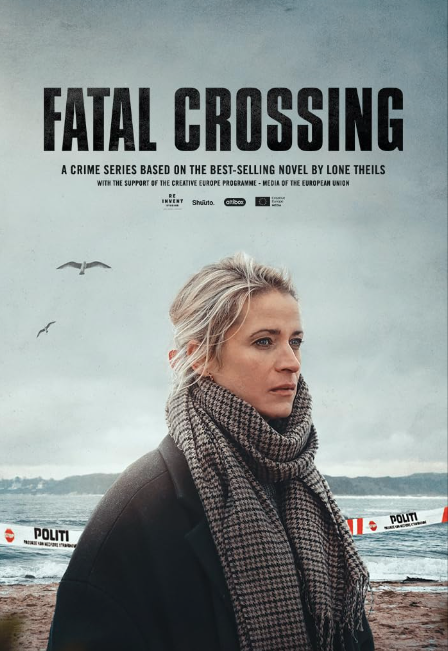
[Big Spoilers ahead ... ]
I've heard -- in television shows and movies about serial killers, I've never done any research into them myself -- that female serial killers are very rare. Fatal Crossing, the latest Nordic Noir TV series from Kristine Berg and Arne Berggren, does a masterful job of portraying one, and how she came to be.
The villain, Lisbeth/Jyte, tells her interrogator, the journalist Nora Sand, that she's not afraid of being abandoned, she's afraid of being forgotten. That's as an astute a statement of the obsession with fame that I've come across. As part of Lisbeth's quest for fame, she likes to be quoted. I hope this fictional character appreciates that I've at least paraphrased her.
Fortunately, most people who value fame and enjoy a bit of it, including me, don't achieve it and seek to maintain it by killing people. Lisbeth discovers how much killing attractive young women really appeals to her when she and her best friend Lulu are kidnapped by a man with a taste for harming young women himself, and Lisbeth turns the tables on him, not killing him, but running him and Lulu in support of satisfying her own deadly needs.
We follow the path to discovering this depraved menage a trois via the central character, Nora Sand, an intrepid journalist with her own backpack of emotional baggage. She's played in compelling detail by Marie Sandø Jondal, whom I've never seen before on the screen. Indeed, I've never seen a searcher for serial killers portrayed with quite the range of emotional valence Sand brings to the part.
Berg and Bergson deserve a lot of credit for this, as does Lone Theils, herself a Danish journalist and author of the novel of the same name from which this TV series was adapted. Fatal Crossing is itself the first in a series of novels, and I very much look forward to seeing more of this Nordic Noir with a twist from this team.
See also my reviews of these other Berg and Berggren TV series: Catch and Release and Outlier
And my 2022 interview with Berg and Berggren:
=====
Welcome to Light On Light Through, Episode 381, a special Saturday episode of this podcast, in which Captain Phil and I talk about the Philip K. Dick Film Festival going on today at the Musuem of the Moving Image in Astoria, Queens; a panel I'll be moderating there at 2:40 this afternoon on the Anatomy of a Feature Winning Script; my novel It's Real Life: An Alternate History of The Beatles which has just been published and for which no movie or TV script has yet been written (but a radio play has been adapted from the first chapter, see the links below); Philip K. Dick; and much more.
Welcome to Light On Light Through, Episode 380, in which I review the first season of 3 Body Problem.
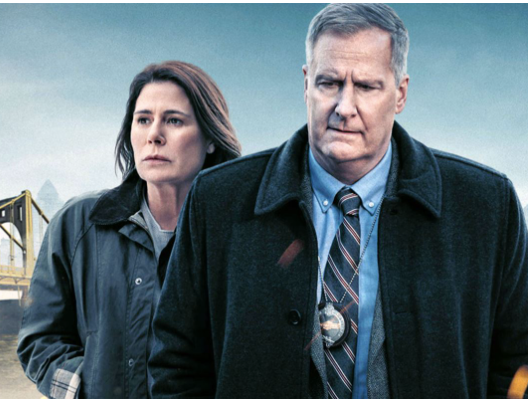
My wife and I really enjoyed the first season of American Rust on Showtime nearly three years ago, and we enjoyed the second season on Amazon that we binged in the past few days even more.
Everything ranging from the dialogue to the plot to even the ending was in high gear in this second season.
[And here now is an advisory about Spoilers in what follows.]
Plotwise, it took a really long time before you could tell who the killer was. And once we found out and he was disposed of, our heroes were challenged by another killer, which led to the high-octane, ambiguous ending.
By high octane, I mean Grace and Del and Billy and family sitting around a dinner table for several harrowing minutes as Fisher gets them in his sniper sights, perched outside. When Billy, now with the benefit of some Army training a marksman, spots a red dot, he goes outside to take care of the sniper. And there second season ends, as we hear a shot ring out. I looked over that final scene several times, and it looks to me that though Fisher is aware that Billy or someone has exited the house, he hasn't had time to refocus his aim on Billy. So if there is a third season -- and I surely hope there is one -- I predict we'll find out that Billy shot and killed Fisher before he got off a shot. (My wife takes a more ambiguous view.) On the other hand, it's certainly also possible that Fisher got off that shot, not at Billy, but at someone inside the house at that dinner table.)
I will say that one problem I had with that great ending is why didn't Fisher shoot at Del or Grace right after he had them in his sights? Of course, I'm no sniper, so maybe that's what snipers do, play around with getting their targets just right.
Meanwhile, another acutely cliff-hanging note near the ending comes when Steve's assistant cop Hannah comes to in the hospital. She was pretty much awake when Del gave Steve his confession. And though Steve was killed by Grace -- another great scene -- and the recording of Del's confession destroyed, Hannah could trigger an investigation of Del and the three murders he confessed to if she remembers what Del said at that moment and anyone in authority believes her. But, optimist that I am, I think even remembering what Del said is fairly unlikely given the bad shape that Hannah was in -- having been shot by Russell and barely hanging on that moment. Also, I assume that even if she remembers what Del said, anyone defending him at a trial could impugn Hannah's testimony, by letting the judge and jury know what condition she was in when she heard or thought she heard Del talking.
Now, I said that the dialogue was in high gear. My favorite line: when Vic walks into the bar with his broken finger in a bandage, and the bartender asks him that perfect, sarcastic question. Not only a great line, but she delivered it with just the right tone of voice.
I read somewhere that Amazon cares less about what reviewers are saying than how many people are viewing a series. Here's hoping that they're legion, and we see a Season 3 before too long.
See also American Rust 1.1-2: Pennsylvania Noir ... American Rust 1.3: Highs and Lows of Life at the Same Time ... American Rust 1.4-5: Tightening Noose and Fraying Relationships ... American 1.6: The Debts ... American Rust 1.7: The Dead Can't Buy Drugs ... American Rust 1.8: Finally, Some Hope ... American Rust 1.9: Needed, Another Season, or at Least Episode